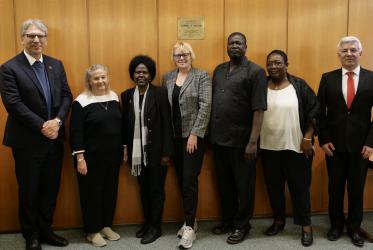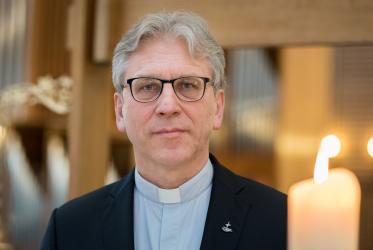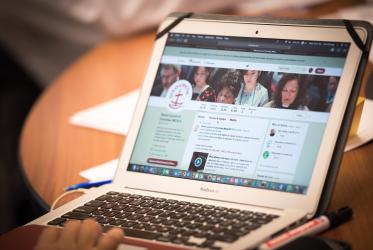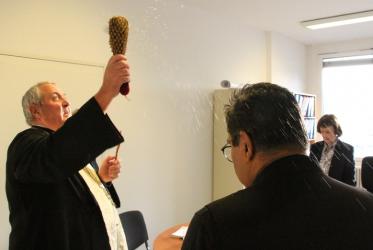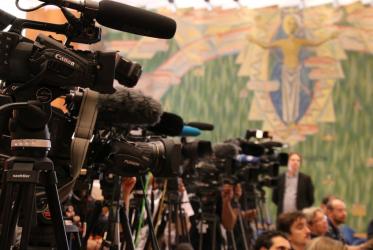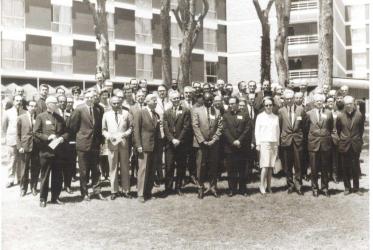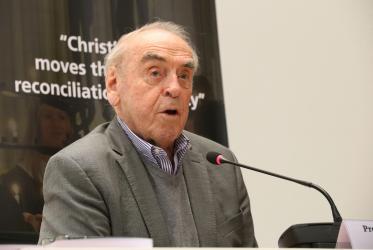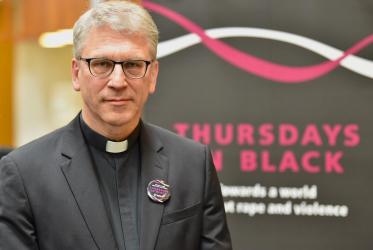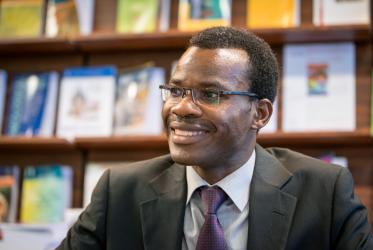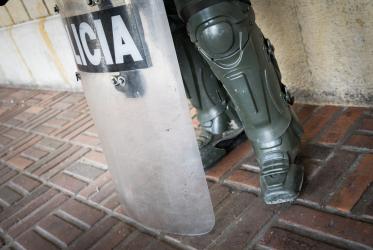Displaying 161 - 180 of 612
20 February 2020
WCC Central Committee leadership to meet in Geneva
17 February 2020
WCC welcomes new staff
11 February 2020
WCC receives Geneva Engage Award
30 January 2020
WCC relaunches Sarah Chakko Scholarship Fund
30 January 2020
WCC staff shares “great blessing of waters”
13 January 2020
Ecumenical family prepares for Christmas
12 December 2019
Moltmann reflects on spirit of truth in a post-truth era
02 December 2019
WCC staff appointed to WHO Civil Society Working Group on NCDs
28 November 2019

